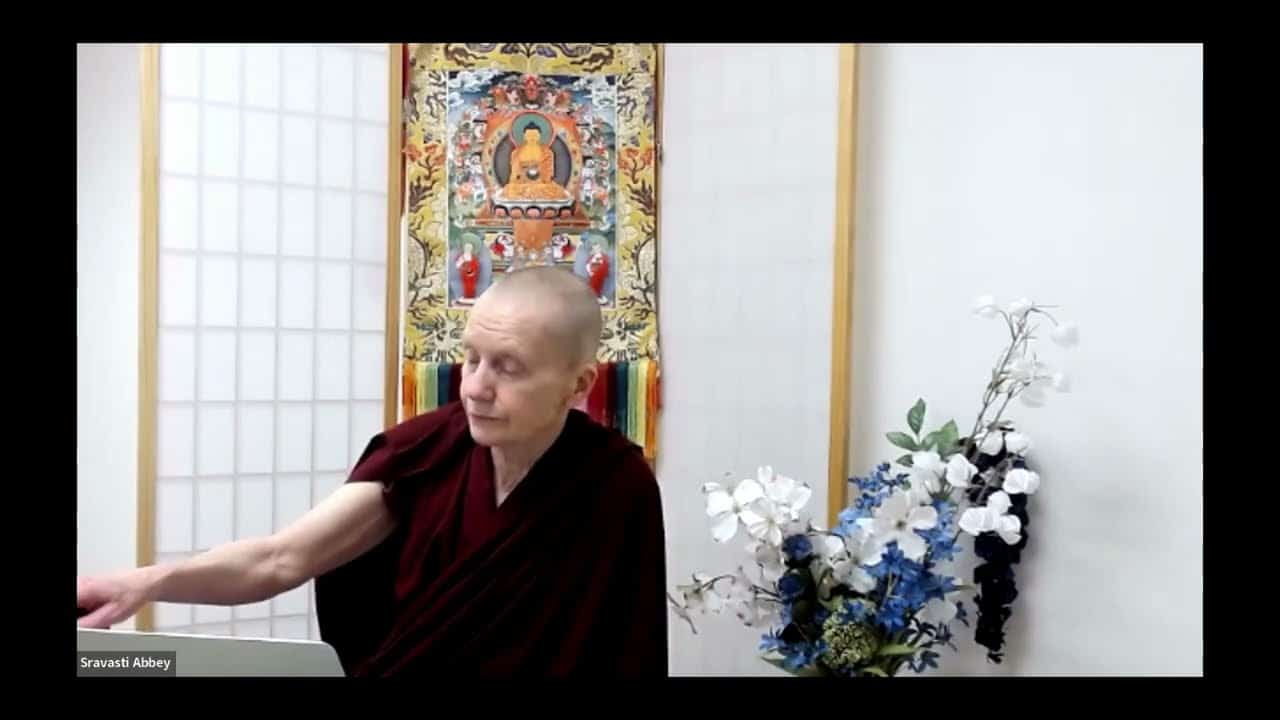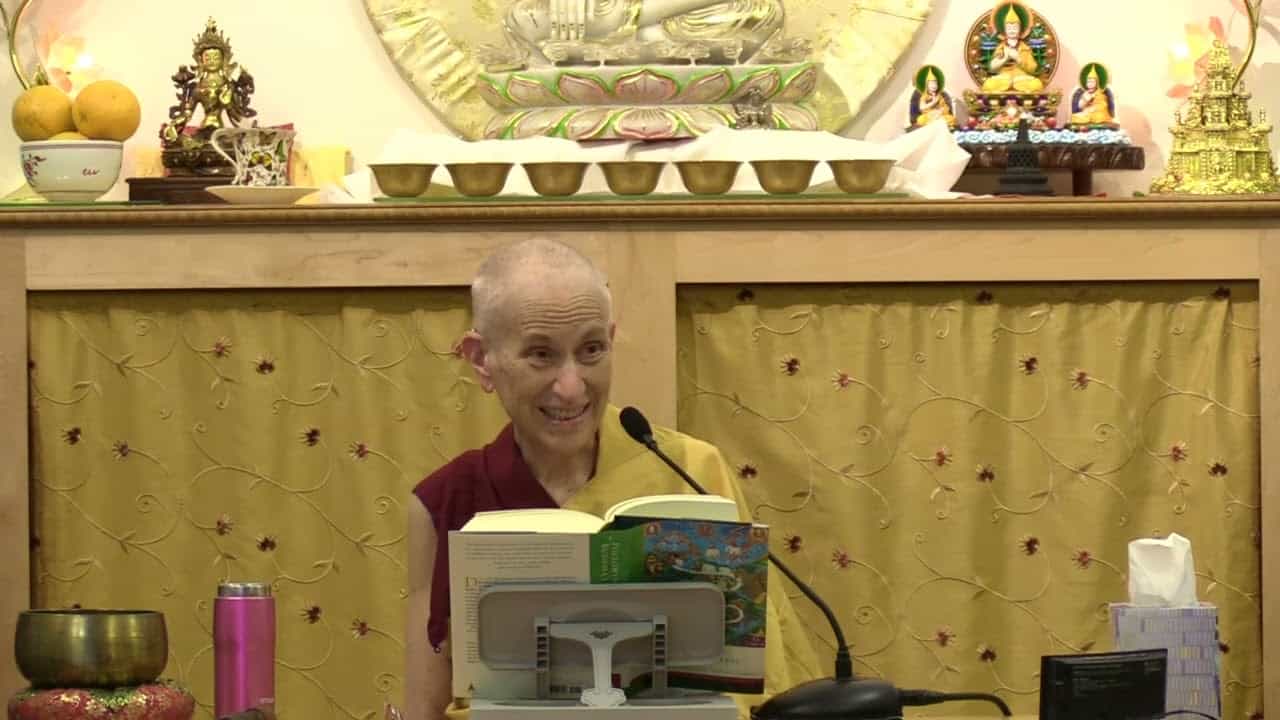Karma in samsara and beyond
75 Samsara, Nirvana, and Buddha Nature
Part of an ongoing series of teachings (retreat and Friday) based on the book Samsara, Nirvana, and Buddha Nature, the third volume in The Library of Wisdom and Compassion series by His Holiness the Dalai Lama and Venerable Thubten Chodron.
- Path and fruit for stream-enterer, once-returner, nonreturner, arhat
- Fetters eliminated at each path
- Two aspects of liberation
- Reviewing post meditation fetters that are eliminated
- Seeing four truths as they are
- Knowledge of destruction and knowledge of nonarising
- Polluted virtuous, nonvirtuous and neutral karma
- Polluted karma and types of rebirth in samsara
- Unpolluted karma and liberation
- Expanding the intention to long term happiness of liberation and awakening
Samsara, Nirvana, and Buddha Nature 75: Karma in Samsara and Beyond (download)
Contemplation points
- Describe how dispassion gives rise to the cause for liberation.
- Imagine full liberation as described in the text: freedom from the ignorance and defilements experienced during this lifetime, and freedom from rebirth after the breakup of the present body. What might this be like?
- Consider how liberation gives rise to the knowledge of the destruction of all pollutants. In your own words, describe the two ascertainments: the knowledge of destruction and the knowledge of non arising. Take some time to consider the happiness, confidence, and ease this would bring to the mind.
- What is the difference between polluted and unpolluted karma? What are three types of polluted karma? What type of beings create unpolluted, and what are the results of this type of karma?
- Why is karma created in relation to holy beings so powerful? Why is it not enough to attain the path alone?
- Regarding the 11th link of “Transcendental Dependent Origination,” His Holiness writes: “Having fully understood that there is no self or anything belonging to a self anywhere at all, they are the masters of their minds.” Why does an understanding of no self lead to a mastery of mind?
Venerable Thubten Chodron
Venerable Chodron emphasizes the practical application of Buddha’s teachings in our daily lives and is especially skilled at explaining them in ways easily understood and practiced by Westerners. She is well known for her warm, humorous, and lucid teachings. She was ordained as a Buddhist nun in 1977 by Kyabje Ling Rinpoche in Dharamsala, India, and in 1986 she received bhikshuni (full) ordination in Taiwan. Read her full bio.


